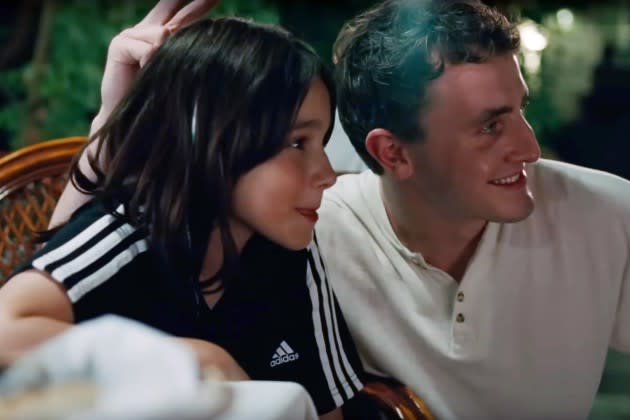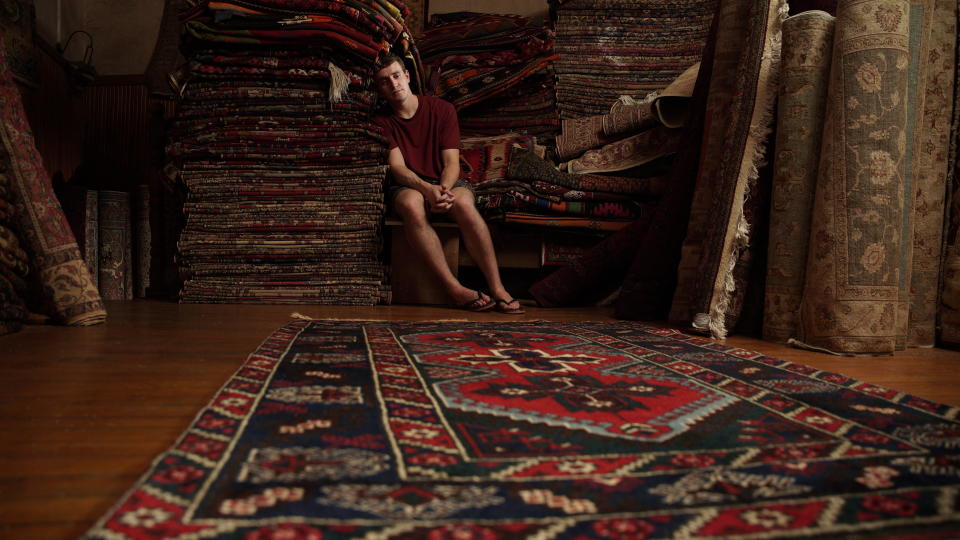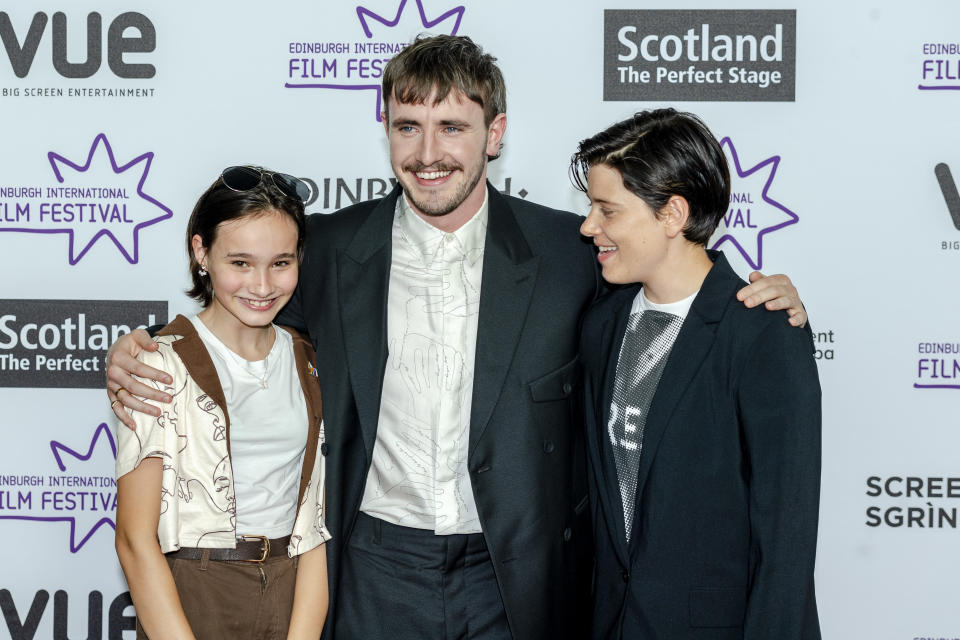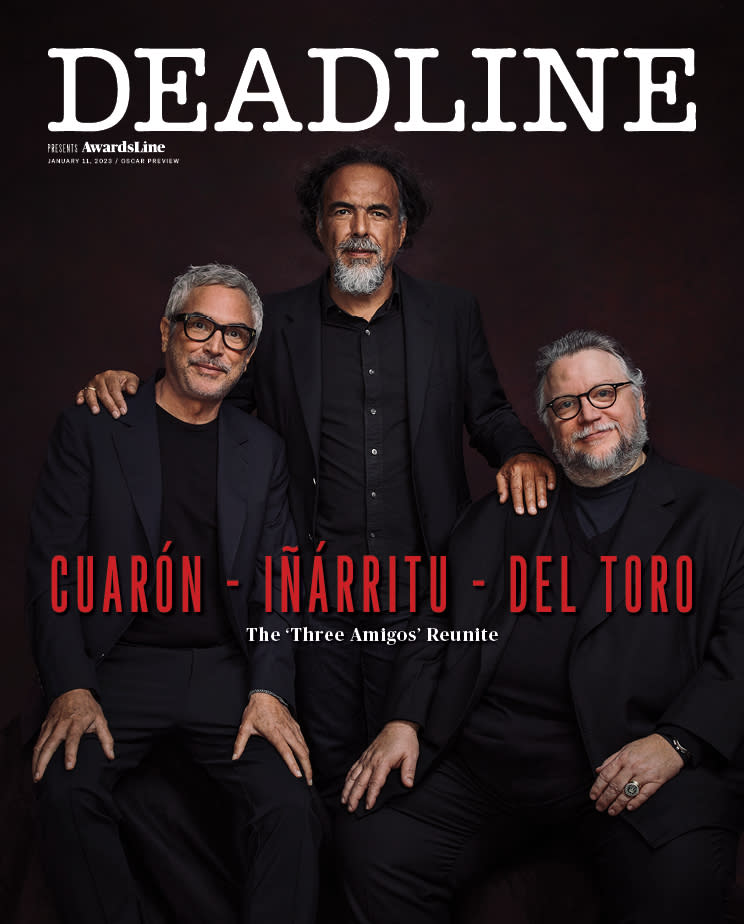‘Aftersun’ Star Paul Mescal On The Struggles And Anxiety Of Young Fatherhood & Co-Star Frankie Corio: “She‘s Wild”

Paul Mescal enters the north London cafe having trudged a short distance through the snow from his gym. Heads turn, but Mescal is oblivious. He shakes himself out of a hooded coat then nonchalantly removes a sweater to reveal a ribbed torso sheathed in a white T-shirt. More stares. The star of Aftersun, Scottish director Charlotte Wells’s tender visual poem about a father and daughter, takes a seat and rubs his tummy. In that moment it’s all too easy to compare him to Marlon Brando, with the tight-ish whitey shirt and all that.
As it happens, the Irish-born actor is playing one of Brando’s signature roles: the brutish but passionate Stanley Kowalski in Tennessee Williams’ landmark play A Streetcar Named Desire, at the Almeida Theatre, a five-minute walk away from where we’re breakfasting. The revival has been on Mescal’s slate for three years, delayed by Covid and scheduling issues. Early previews merged with an extension of rehearsals due to Lydia Wilson’s withdrawal from the production for health reasons, and she’s since been replaced as Blanche DuBois by Patsy Ferran, a frequent collaborator of director Rebecca Frecknall.
More from Deadline
Now in his late twenties, Mescal has been on a roll since the BBC adaptation of Sally Rooney’s 2018 novel Normal People was released on BBC TV and Hulu at the height of the pandemic. Audiences lapped up the painfully honest relationship drama from the comfort of their sofas. The series made Mescal an overnight star, hurling him up the proverbial ladder and winning him the TV BAFTA for leading actor. That capital was used wisely, introducing him into the world of features with a small but significant role in Maggie Gyllenhaal’s acclaimed directorial debut The Lost Daughter as the guileless beach bartender who draws the film’s aloof, prickly protagonist (Olivia Colman) out of her shell.
It was while preparing to shoot his next film, God’s Creatures, with Emily Watson in Donegal, Ireland, that Mescal got wind of Wells’ Aftersun. His agents, Lara Beach at Curtis Brown and CAA’s Zach Kaplan, were excited about the story of a young, separated father and his pre-teen daughter holidaying at a Turkish resort. The tale, perhaps a distorted memory of a vulnerable father’s unravelling, unfolds through the young girl’s eyes. Mescal pushed to meet Wells, reasoning “any actor who was reading it was gonna want to do it.”
He auditioned for the part of the father, Calum, then did a chemistry read with 12-year-old Frankie Corio, already cast as the daughter, Sophie. This was the real test, he says, because the film “lives or dies” — notwithstanding Wells’ “wonderful script and direction” — on whether you believe in the two actors. Fortunately, he and Corio hit if off straight away. “She’s wild, wild, like Frankie is wild,” he says, his grin widening as he speaks.

For proof, Mescal proudly points to the British Independent Film Awards (AKA the BIFAs), where Aftersun won seven awards, including Best British Independent Film and Best Director. At the pre-Christmas awards ceremony in London, Corio’s speech went viral after she playfully roasted Mescal in front of a roomful of industry people, yelling, “I was number one on the call sheet and he was number two — so he was the co-star and I was the star!”
Mescal laughs. “I don’t know if I’m particularly good with kids, generally speaking, but for some reason with Frankie, I found it easy. I can’t explain that other than probably, like, chemistry that exists between people. And we were lucky.”
Asked what poetry might best connect to the film, Mescal cites Thomas Lux’s “My Father Whistled”, which Lux dedicated as “a love poem to my father”. He then recites a line from another poem about a daughter teething for the first time. “It’s so tender,” he says softly. But it’s perhaps Barry Jenkins, one of the film’s producers via his PASTEL production company, who articulated the film’s emotional core more succinctly in The New York Times when he described Calum, a loving but emotionally ill-equipped young man clearly buckling under the pressures of parenthood, as “walking through a world of quiet anguish”.
Mescal nods his head in agreement. “I think it’s spot on,” he says. “I don’t think there’s anything particularly interesting about watching somebody suffering for 96 or 97 minutes. What I think makes it more effective is when you see them trying not to, and I think Calum really doesn’t want to have the set of feelings that he’s been given. And you see him fronting up against that on a daily basis. That, to me, is where… ” He pauses. “It devastates me, you know? It’s like, what is harder to watch than somebody who wants to be better?”
Talk turns to the topic of masculinity, about hiding emotions, and the way men are often slow to look after their mental health. “I think talking to someone about your feelings is a very, very modern thing,” he says. “Like, when I told my dad that I’d started going to therapy, he went, ‘What? What’s wrong with you?’” He laughs. “Because that’s, culturally, what you do: you go to a therapist if you’re mentally blocked. When I first started spending time in LA, I hadn’t started going to therapy properly. People would look at me like, ‘Why?’ And so, initially, I was defensive. I was like, ‘I’m fine.’ And of course that’s not the point. The point is, the way you look after your body should be the way that you look after…”

Your mind? Mescal nods. “You have to. You have to. I’m very grateful of the time that I’m in now and not 20 years ago, even, where that wasn’t really an option. It wasn’t that it didn’t exist, it just wasn’t really something that people would do. They would just bottle it up. And some people could do it and survive it and be fine. But some people just can’t do it.”

He says it’s vital that films like Aftersun exist to help trigger debate on subjects that are often put to one side. “There’s a catharsis in watching something that makes you feel,” he says, pointing out that the way Wells’s immersive film deliberately withholds some key information from the audience “forces them to think a little bit more”.
Going forward, Mescal is eager to take the next step, but he admits that it’s a process that scares him. “The thing I’m nervous about is… ” He pauses. “Being totally honest, I have a desire to be liked and for my work to be admired, but that’s not the reason I do it. But I do want to know what people think, and I’m nervous about the next steps. I don’t want to make just movies like Aftersun for the rest of my life. I know that will be the bedrock, but I want to have my cake and eat it. There are other things out there I want to do and try and taste, I’m just scared about being judged for either doing them or not doing them, which is ridiculous, because, so far, I don’t think I’ve made any film, or done any play or any piece of work yet, that I haven’t needed to make. And I don’t see that changing anytime soon.”
Best of Deadline
2022-23 Awards Season Calendar - Dates For The Oscars, Grammys, Guilds & More
TV Cancellations Photo Gallery: Series Ending In 2023 & Beyond
Hollywood & Media Deaths In 2023: Photo Gallery & Obituaries
Sign up for Deadline's Newsletter. For the latest news, follow us on Facebook, Twitter, and Instagram.

 Yahoo News
Yahoo News 
